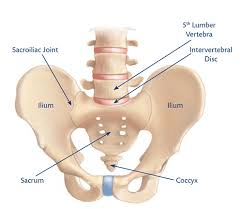Recent research suggests 50% of pregnant women will incur pregnancy related pelvic girdle pain (PPP). PPP consists of pain within and around the pelvis which can include the lower back, the hip region and pubic region. The pain may persist after pregnancy in some women and can lead to severe disability during pregnancy. Some women can require crutches for walking in severe cases.
The most frequent reported area of pain in women with PPP is over the sacro-iliac joint (joint between the sacrum or tail bone and pelvis) the gluteal region or pubic symphysis (front of pelvis). Leg pain is uncommon but can occur in the back of the thigh. Patients often describe a ‘sharp’ ‘catching’ pain in the buttock or leg.
Current evidence from the literature shows that women with PPP have altered muscle function in the lower back muscles and hip muscles. These muscles can become weak or overactive in an attempt to cope with the extra load going through the pelvis as the pregnancy progresses.

Walking, prolonged standing and single leg activities such as going up steps or putting on pants are commonly reported as aggravating activities. These activities result in load being transferred through the pelvis causing pain.
Risk factors for developing PPP include:
- Strenuous work
- Previous low back pain
- Previous PPP during or after pregnancy

